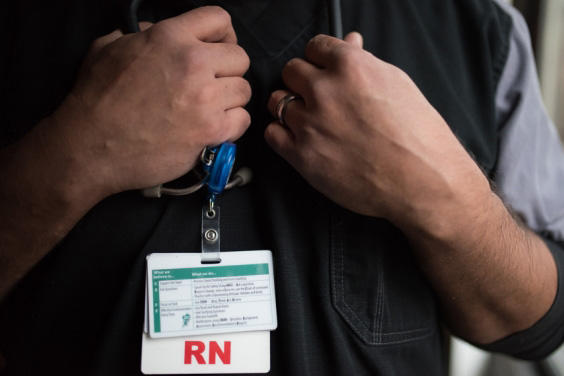The licensing, credentialing and certification of service members will be a major topic at the American Legion's upcoming National Credentialing Summit in Washington, D.C., on Feb. 17-18.
The event will also examine best practices for recognizing the military training and experience of veterans seeking jobs in the private sector.
"Credentialing in the civilian job market needs to take into account all the skills and training that veterans bring with them from the military," said Joe Sharpe, director of the Legion's National Veterans Employment and Education Division. "But the Department of Defense also stands to benefit by providing its forces with more credentials from the private sector; it boosts the level of professionalism."
Sharpe said DoD's readiness level could be boosted in many areas by issuing credentials available to civilian workers; for example, providing aircraft mechanics with A&P (airframe and power plant) licenses issued by the Federal Aviation Administration.
"One way that service members can get more out of their military experience is to offer them the chance to get civilian licenses and credentials," Sharpe said, "and to increase their own knowledge and expertise. That kind of specialized training makes the military workforce even stronger."
One program to help military truck drivers get civilian credentials was developed by the Teamsters Union; it provides additional training, through the Teamsters Military Assistance Program, that helps service members earn commercial drivers' licenses. James P. Hoffa, the union's general president, is a featured speaker at the summit.
Credentialing the military in ways that make sense to its mission and force structure will also help with recruitment, Sharpe said. "Young men and women will see military service as an even more attractive option if it includes credentials that will help them later in the private sector," Sharpe said.
The American Legion and the military are strong partners on the credentialing issue. Sharpe and his staff share expertise with DoD and work with its state liaison offices, which offer assistance to state legislators.
Sharpe said the military has already embraced credentialing as a way to further professionalize its forces. For example, the Armed Forces offer COOL (credentialing opportunities online) programs to their service members.
"DoD wants to build on what it has already accomplished," Sharpe said. "That's why we're having a session on the military's approach to credentialing. That's why Gen. [David] Perkins is speaking at our summit."
Perkins is commanding general of the U.S. Army Training and Doctrine Command in Fort Eustis, Virginia.
Want to Know More About the Military?
Be sure to get the latest news about the U.S. military, as well as critical info about how to join and all the benefits of service. Subscribe to Military.com and receive customized updates delivered straight to your inbox.











